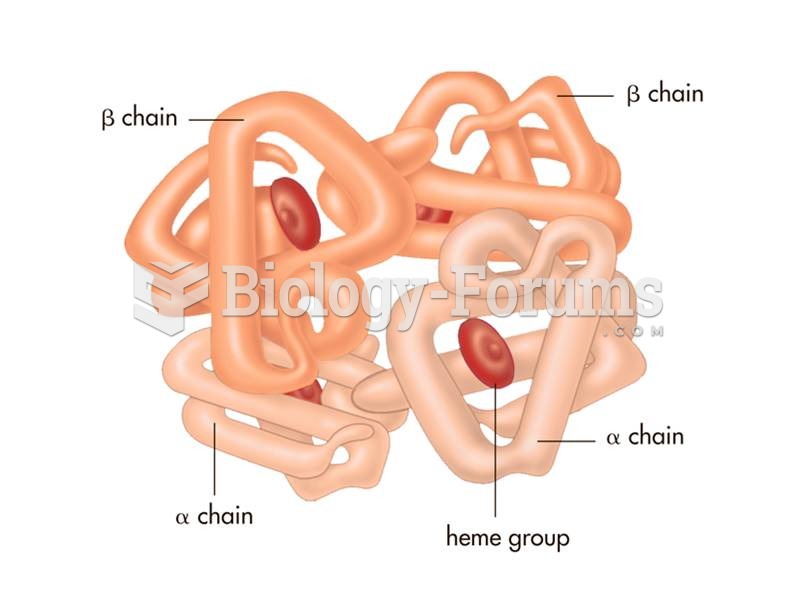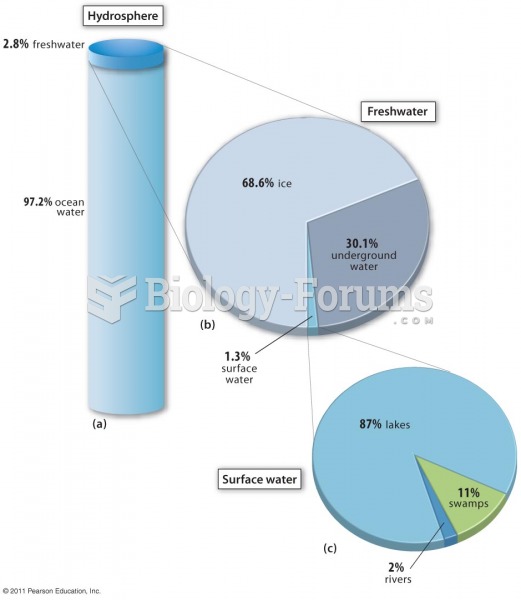|
|
|
There are 60,000 miles of blood vessels in every adult human.
One way to reduce acid reflux is to lose two or three pounds. Most people lose weight in the belly area first when they increase exercise, meaning that heartburn can be reduced quickly by this method.
Increased intake of vitamin D has been shown to reduce fractures up to 25% in older people.
Your skin wrinkles if you stay in the bathtub a long time because the outermost layer of skin (which consists of dead keratin) swells when it absorbs water. It is tightly attached to the skin below it, so it compensates for the increased area by wrinkling. This happens to the hands and feet because they have the thickest layer of dead keratin cells.
The Romans did not use numerals to indicate fractions but instead used words to indicate parts of a whole.







